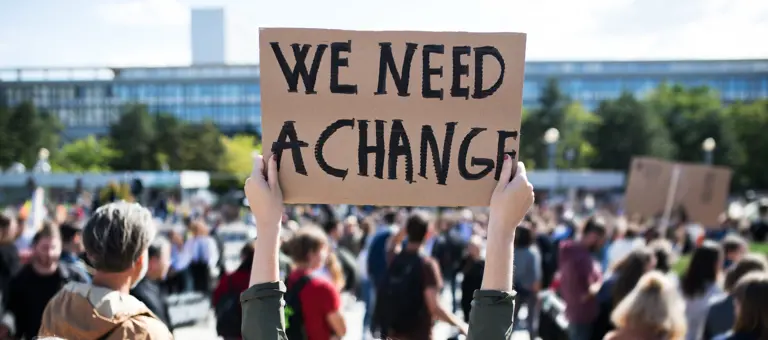
Unpacking the IPCC's AR6 Synthesis Report: The Latest on Climate Change
9 February 2023
Released in March, the latest Intergovernmental Panel on Climate Change (IPCC) report is the most comprehensive account of the complex interactions between extreme events and their ongoing impacts – the culmination of 7 years’ of peer-reviewed science by nations’ peak scientific bodies and global leading researchers.
What is new in the IPCC’s 6th report?
- Climate change is confirmed as human-made: There is no longer any doubt that humans have altered the climate. Global surface temperatures have risen by 1.1°C, generating extremes of weather and climate in every region of the world.
- Inequality has been measured: Vulnerable areas of the world contribute the least to climate change and are disproportionately affected by its impacts. Parts of Africa, South Asia, South and Central America, and small island states are up to 15 times more likely to suffer fatalities due to climate disasters than resilient communities.
- Stalled progress means we’re on a path toward significant disruption: Despite some advancements in adaptation and mitigation measures since the previous IPCC report, it seems highly probable that global temperatures will exceed 1.5°C during the 21st century, and limiting warming below 2°C will be challenging. Insufficient financial support is hindering progress towards achieving climate goals in all regions and sectors, thereby impeding the implementation of adaptation measures.
It’s not all bad news
- Every fraction of a degree counts: Every increment of global warming intensifies multiple hazards. While some impacts are irreversible, avoiding warming can slow or prevent the effects of climate change.
- There is enough money, but it needs to come fast: 3-6 times the current climate investment is needed, particularly for developing countries that require external funding to adapt for the often-disproportionate impacts of climate change they will experience.
- Solutions are at our fingertips: Most of the technologies required to deeply, permanently, and immediately reduce emissions in the short- and medium-term are available today. Scaling up finance, technology and international cooperation will accelerate emissions reductions.
- Acting now will deliver co-benefits: Deep and sustained mitigation in the near-term (this decade) would reduce losses and damages for humans and ecosystems, deliver many co-benefits, especially for air quality and health. The economic benefits of improved air quality, for example, would outweigh the cost of reducing or avoiding emissions.
The decade of action
Over the past two decades there has been a focus on developing political and institutional support to address climate change. Given Australia is one of the most vulnerable developed countries to climate impacts, there a pertinent obligation for business leaders to take tangible steps towards net zero. There are a number of frameworks that provide guidance on how this can be done, but it needs to be happen from now, emcompassing the following steps:
- Form net zero commitments
- Develop transition plans to support capital allocation (mitigation and adaptation) while factoring in social considerations
- Embed climate risk management practices through the organisation
- Link Board and Executive remuneration to climate outcomes
- Disclose on progress against commitments and strategic considerations
- Think about vulnerable communities globally and locally.
To discuss how your organization can embark or accelerate its journey to respond to climate change, please contact Hannah Daghighi.
Related Insights

Winning the race for talent: building a sustainable future for the data centre workforce
Winning the data centre talent race is critical as unprecedented industry growth drives fierce competition and escalating salaries, making it increasingly challenging to attract and retain skilled professionals. Operators must urgently reimagine talent management and employee experience, going beyond traditional compensation strategies to power sustainable industry growth.
Read more
Beyond the build: what data centre operators must master to operate at scale
Data centre growth now depends on operational mastery. Learn the six critical imperatives operators must develop to capture the value of expansion without inflating the cost base and sacrificing operational excellence.
Read more
Unlocking private capital: scaling investment in the CCS sector
Unlock the next wave of CCS investment. Discover how the financial services sector can scale viable models, reduce risk and mobilise private capital for commercial CCS deployment.
Read more
Powering up Southeast Asia’s energy transition
How did Brookfield turn its first renewables investments in the Philippines and Vietnam into the foundation of a scalable decarbonisation platform for the region?
Read moreIs digital and AI delivering what your business needs?
Digital and AI can solve your toughest challenges and elevate your business performance. But success isn’t always straightforward. Where can you unlock opportunity? And what does it take to set the foundation for lasting success?